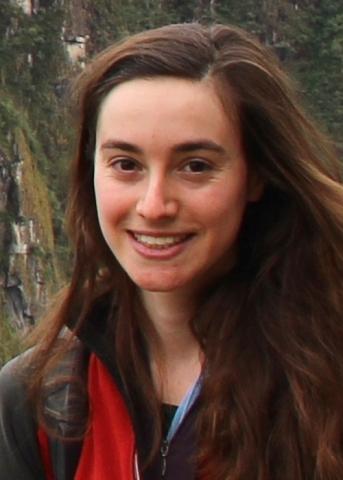Rachel Shaffer graduated with a PhD in Environmental Toxicology in 2020. She serves as Senior Advisor for Chemical Safety - Council on Environmental Quality (CEQ) - The White House.
Why did you choose the UW?
I was drawn to the PhD program in toxicology that is within a broad and diverse Department of Environmental and Occupational Health Sciences, which itself is housed in a strong School of Public Health. The opportunity to live in Seattle was also an important factor in my decision.
Why did you decide to study toxicology?
I want to understand the biology of what happens when we are exposed to pollutants and then use this expertise to help drive policies that are protective of human health and the environment.
What motivates you about public and environmental health?
I’m deeply concerned about the impact of environmental exposures on human and ecological health, but there is only so much that individuals can do to protect themselves. Real progress can only come through systemic change to prevent the use and release of toxic chemicals.
Working in public environmental health allows me to do interdisciplinary research that can be applied to upstream policies that reduce risk and prevent disease. I also hope that these policies will have similar, simultaneous benefits on ecological and planetary health.
What drives your passion for science communication?
I want to help translate information to the public and to policymakers so that the results of environmental health research can actually be used to improve health outcomes. More generally, I also want to raise awareness of the impact of pollutants on human health, since many people are unaware that chemicals in everyday products may pose risks. You can see my work on my blog, RachelTalksTox.
What kind of research are you doing?
I’ve been involved in a variety of projects over the past few years. Recently, I've focused on developing my dissertation project looking at the potential link between air pollution and Alzheimer’s disease.
Any thoughts about receiving the SPH Endowed Fellowship?
I’m extremely grateful to the donors for establishing this award and very honored to have received this recognition from SPH. I plan to use this fellowship money to make it a little easier to live in this expensive city and also, specifically, for travel to conferences related to my interdisciplinary interests.
Do you have any extracurricular activities or jobs?
Outside of school, I enjoy hiking, biking, climbing, skiing and yoga. I also love farmers’ market-inspired cooking projects. I volunteer regularly at the Pacific Science Center, where I teach kids about biomagnification of pollutants in the Puget Sound food chain using an activity that I developed when I completed their Science Communication Fellowship program a few years ago.
I’m also always excited about finding ways to apply my environmental health knowledge to real-world scenarios. For example, I’m participating in the stakeholder process to update Washington state’s occupational lead standards, and I’ve helped facilitate community air pollution meetings in Beacon Hill.
What are your future goals?
I hope to be able to use my environmental health expertise to pursue a career in regulatory environmental health and science policy. I envision that this work will involve interpreting and integrating multiple lines of evidence from both toxicology and epidemiology in order to set health-protective standards and policies. I also plan to continue to use my science communication skills to raise awareness and help promote positive change.
What do you like most about Seattle?
I love that I can see the mountains and water from so many places even while still in the city. Those views help me keep some perspective, even when school gets busy and stressful.
Find out more about the PhD program in Environmental Toxicology.

